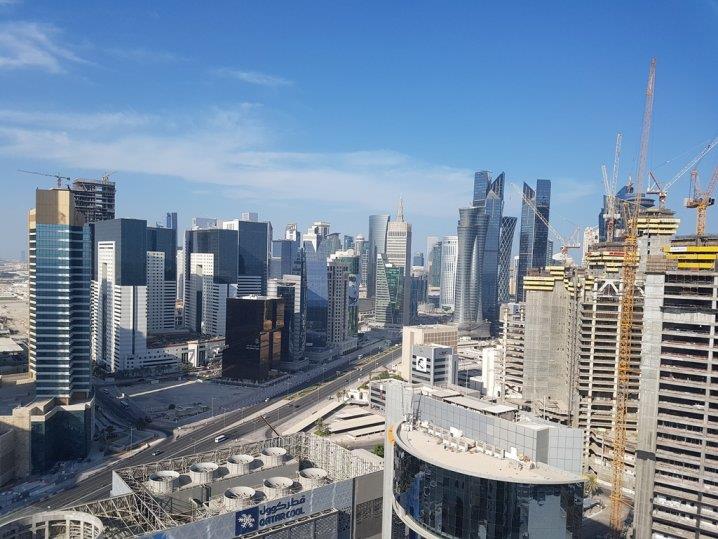
Global bodies vouch for Qatar's solid economy
DOHA: As Qatar enters the 10th month of unjust blockade, international agencies are increasingly affirming the resilience of Qatari economy.
A day after IMF reaffirmed that Qatari economy continued to remain strong and the impact of economic blockade was fast fading, Institute of International Finance (IIF) yesterday noted ‘Qatar has successfully turned the crisis in to opportunity.'
'Although the Saudi-led blockade on Qatar continues into its ninth month and shows no signs of abating, Qatar's economy has remained resilient. The blockade has had a silver lining, motivating deeper trade and diplomatic ties with a wide range of partners beyond their immediate geographical neighbourhood, which could pay long-term dividends, the IIF Chief Economist Garbis Iradian and IIF analyst Boban Markovic said in the latest research note on Mena.
The blockade did visibly crimp non-hydrocarbon activity in the middle of 2017, particularly in sectors such as trade, tourism, and real estate where foreign participants had played a leading role. However, the shock has largely dissipated, and manufacturing remained strong throughout. Overall, IIF estimates 1.9 percent growth for 2017, which it sees rising slightly in 2018 and beyond due to a pickup in private consumption, public spending, and exports.
According to IIF, Qatar's banks are recovering from a period of weakness in the third quarter of 2017, and the government's already high fiscal buffers are being replenished. Nonresident deposits in Qatari banks have declined from $50.7bn in May 2016 to $37.6bn in January 2018. This $13bn decline has more than been offset by the increase in government deposits leading to total deposits growth of 24 percent (year-on-year) in January 2018.
The IIF analysts noted that Qatar National Bank, the largest bank in the region, has recently raised $1.3bn through privately placed bonds, in addition to another priced private note of $1bn. The authorities responded to the large nonresident capital outflows in 2017 by tapping the SWF to provide liquidity and keep the economy on steady footing. Consequently, in a notable departure from the normal pattern, nonresidents were a net drain on capital flows in 2017, while the resident sector was a net contributor.
'Looking ahead, as nonresidents have returned to Qatar's banks and equity market, we expect the SWF to resume its foreign investment activities in 2018, although at a subdued pace. In this environment, both the sovereign and commercial banks see a ripe environment to turn to capital markets and issue new securities denominated in a range of currencies. IIF expects Qatar's fiscal deficit, excluding investment income, to narrow from 9.5 percent of GDP in 2017 to 5 percent in 2018, or $9bn, supported by higher hydrocarbon revenues. This is likely to be financed by one-third from external borrowing and two-thirds from tapping Qatar's large foreign assets.
Nonetheless, public foreign assets (official reserves plus SWF) will remain north of 200 percent of GDP. With the exchange rate peg remaining in place, interest rates would move in line with actions by the Federal Reserve.

Legal Disclaimer:
MENAFN provides the
information “as is” without warranty of any kind. We do not accept
any responsibility or liability for the accuracy, content, images,
videos, licenses, completeness, legality, or reliability of the information
contained in this article. If you have any complaints or copyright
issues related to this article, kindly contact the provider above.


















Comments
No comment